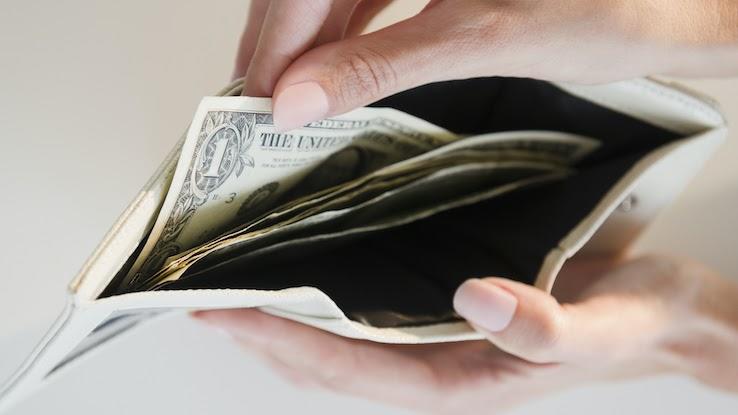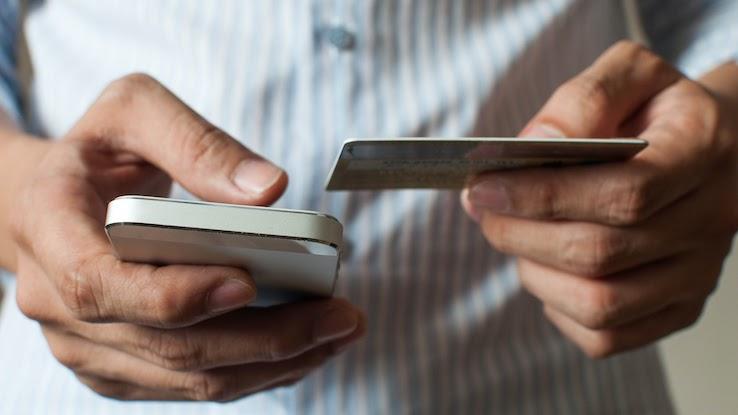Why Microsoft Track Changes Turns Blue on Saving

When it comes to saving money, planning and discipline are the key factors. At the beginning — or after a particularly challenging financial setback or large purchase — it can feel impossible to get ahead. But, often, there are a few small changes you can make to kickstart the saving process.
So, regardless of whether you want to save money on the short-term, long-term, or both, we've rounded up some simple ways to alter your lifestyle and spending habits for the better. Sometimes, the smallest starts can really add up to impressive savings, and these strategies will help build your money management skills, not matter your financial literacy.
Without proper planning, each paycheck can disappear without you realizing where all the money went. That's why it's important to create a budget. One of the tricks? Make a reasonable budget. In other words, if you try to limit your spending too much, you'll be more likely to break your rules and fall into old spending habits.
To begin, evaluate how much you spend and what you spend it on. This involves making a note of what you purchase, where you shop, and the different categories in which you spend your money. Do this for about a month so that you can understand your spending habits better and determine where to cut costs.

The next step is to set a budget. Your budget can be monthly, weekly, or both if necessary. Whether you use a digital spreadsheet or write your budget out on paper is up to you. An easy way to create a working budget is to determine categories of spending based on what you learned about your spending habits.
These categories typically include:
- Housing (rent, mortgage, homeowner's or renter's insurance, and utilities, including electricity, water, gas, and internet)
- Groceries and toiletries
- Other bills (cell phone plan, streaming services, etc.)
- Transportation (car insurance, gas, public transit pass, rideshare costs, parking permit, etc.)
- Healthcare (medical insurance, prescription drugs, etc.)
- Debt (credit card payments, car payments, student loans, etc.)
- Extras (gym membership, salon costs, dining out, concerts, movie tickets, new clothes, vacations, etc.)
In your budget, set a maximum amount you can spend in each category every week or month. Keep track of how much you are spending as you go. Any additional money? Put that in a savings account. Ideally, between 10 and 15 percent of your monthly earnings should go into savings.
Avoid Emotional Spending
Bad money habits can be hard to break, though it can be done with the right amount of self-awareness and discipline. Take the time to get to know yourself and how you spend money to eliminate negative spending behaviors.
Many people engage in what is called "emotional spending," where, as you may be able to guess, their emotions lead to unnecessary spending. For example, when a person is upset, they may have the urge to buy themselves something in an effort to feel better. This spending could encapsulate anything, from ordering food from a restaurant to buying expensive alcohol to getting one's self a present. While it's okay to treat yourself when you're feeling down, many forms of self-care don't involve spending money. Instead of always turning to spending, try calling a friend, exercising, going for a walk, or taking a relaxing bath.

Another form of emotional spending involves comparing yourself to those around you. When you play the comparison game, you might end up spending money needlessly. Seeing your friends or coworkers with cool new shoes, for instance, can easily make you feel like you want some new shoes too. However, by avoiding comparing yourself to others, you can kick that bad spending habit to the curb before it even begins.
Impulse buying also falls into the category of emotional spending. Impulse buying can happen both at physical stores and while shopping online. In physical stores, it usually happens when you don't have a set shopping list. Without a list, it becomes all too easy to get swept up by the store's persuasive techniques to get you to buy things you don't need. Making a shopping list is the best way to avoid impulse buying.
The same thing can happen when you're window shopping online. Retailers of all kinds have sneaky ways of convincing people to purchase extras. When you do feel the urge to buy something you hadn't planned on buying, try waiting a few hours or a day before making the purchase. This will give you the chance to really think about it and categorize it as a want or a need.
Pay Off Your Debt as Quickly as Possible
Between credit card bills, student loans, car payments, and other loans, having debt means a lot of money gets wasted on interest. Paying off debt as quickly as you can is necessary for saving money and avoiding those needless interest charges. Over time, paying debt off more quickly can save you hundreds or even thousands of dollars. If you can pay extra on your debts each month, do it. Focus on the debts with the highest interest first, and then work your way down to your lower-interest debts.

If your debt is so high and saddled with a high interest rate, it may start to feel unmanageable. In a case like this, you might be able to negotiate with creditors to work out a deal. Sometimes creditors will help you out by lowering your interest rate. It's also not uncommon to ask for a reduction in the overall owed amount in exchange for paying a large lump sum of your debt at once.
Reduce Luxury Spending
We all like to enjoy our lives, but the media tends to make it seem like spending money is the only way to do that. Try to remember that it is possible to have fun without shelling out a bunch of cash. For instance, dining out is considered luxury spending. While you don't have to completely stop eating at restaurants, cutting back will save you a lot of money. Cooking at home is much less expensive in the long run, so try to make eating at home more fun by inviting a friend over or listening to a podcast while cooking.

A lot of people also spend more money than they think buying coffee from Starbucks or other local cafes. Those two or three dollars every day really add up. Making your coffee at home instead can save you hundreds of dollars per year — and that's money that can go toward paying off debt or taking a vacation.
Salon visits, car washes, and dry-cleaning are other forms of luxury spending. If you can cut back or eliminate these things entirely, your bank account will thank you. For example, try painting your own nails or washing your own car at home from time to time.
Shop Smarter
From necessities to luxury spending, there are ways to be a smarter shopper that can save you money both day to day and in the long run. Buying groceries in bulk from wholesale stores can provide huge savings, for example. Also, choosing better quality shoes or clothing can cost more initially but saves money long-term since those items won't need to be replaced as often.

If you need new things, try shopping secondhand instead of always buying new. Between, thrift stores, garage sales, Craigslist, and social media marketplaces, most of what you need is available and at a better price point secondhand. You might also consider borrowing instead of buying, if possible. This can include anything from getting a book from the library to borrowing a dress from a friend to borrowing tools from a neighbor.
mccaffreytheartumety1964.blogspot.com
Source: https://www.askmoney.com/budgeting/five-small-lifestyle-changes-add-up-to-big-savings?utm_content=params%3Ao%3D1465803%26ad%3DdirN%26qo%3DserpIndex

0 Response to "Why Microsoft Track Changes Turns Blue on Saving"
Post a Comment